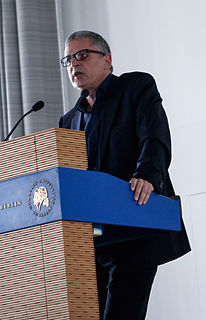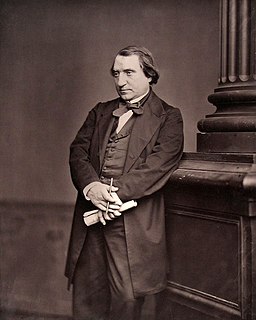A Quote by Thomas Jefferson
I had no idea, however, that in Pennsylvania, the cradle of toleration and freedom of religion, it [fanaticism] could have arisen to the height you describe. This must be owing to the growth of Presbyterianism. The blasphemy of the five points of Calvin, and the impossibility of defending them, render their advocates impatient of reasoning, irritable, and prone to denunciation.
Related Quotes
The lessons of religious toleration - a toleration which recognizes complete liberty of human thought, liberty of conscience - is one which, by precept and example, must be inculcated in the hearts and minds of all Americans if the institutions of our democracy are to be maintained and perpetuated. We must recognize the fundamental rights of man. There can be no true national life in our democracy unless we give unqualified recognition to freedom of religious worship and freedom of education.
[John] Calvin is revered as a thinker of immense importance in Reformed thought, Jonathan Edwards could say in his preface to his treatise on Freedom of the Will that he had derived none of his views from the work of Calvin, though he was willing to be called a "Calvinist" for the sake of convention.
The impossibility of separating the nomenclature of a science from the science itself, is owing to this, that every branch of physical science must consist of three things; the series of facts which are the objects of the science, the ideas which represent these facts, and the words by which these ideas are expressed. Like three impressions of the same seal, the word ought to produce the idea, and the idea to be a picture of the fact.
The epithet beautiful is used by surgeons to describe operations which their patients describe as ghastly, by physicists to describe methods of measurement which leave sentimentalists cold, by lawyers to describe cases which ruin all the parties to them, and by lovers to describe the objects of their infatuation, however unattractive they may appear to the unaffected spectators.
The incipient magician will confess his faith to a universal religion. He will find out that every religion has good points as well as bad ones. He will therefore keep the best of it for himself and ignore the weak points, which does not necessarily mean that he must profess a religion, but he shall express awe to each for of worship, for each religion has its proper principle of God, whether the point in question be Christianity, Buddhism, Islam or any other kind of religion.
We want freedom. We want freedom from the constraints of the cycles of the sun and the moon. We want freedom from drought and weather, freedom from the movement of game, the growth of plants, freedom from control from mendacious popes and kings, freedom from ideology, freedom from want. This idea of freeing ourselves has become the compass of the human journey.
































